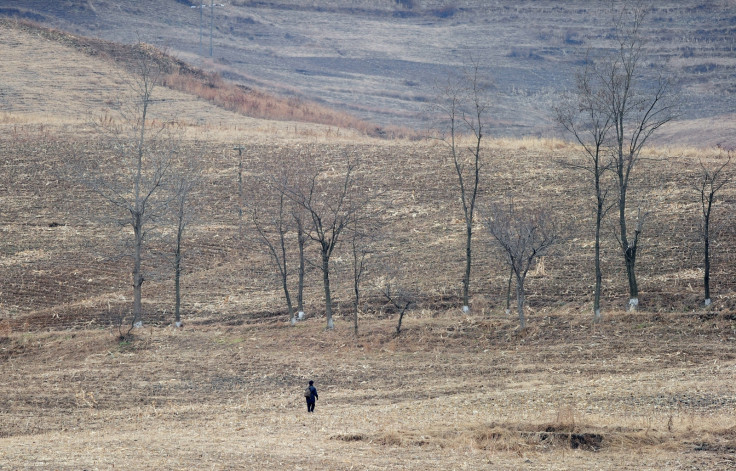North Korean drought wreaks havoc on Pyongyang's economy and electricity

North Korea's devastating drought is thought to be wreaking havoc on its fragile economy by inflicting a direct catastrophic effect on its hydropower-based electricity supply.
Pyongyang, which recently admitted the drought is the "worst in 100 years," is reeling under a serious power crisis as a consequence.
Both, the residents of Pyongyang and those who have visited the isolated country recently, have confirmed frequent power disruption across the country, which is already suffering from decades-long catastrophic economic policies.
"There is no doubt that there is a serious water shortage in this country, which obviously also affects electricity generation," a Pyongyang resident, on the condition of anonymity, told the Washington Post.
While another person who recently visited the poor nation said: "The power situation is pretty bad now, actually. There are definitely major power issues. There was hardly a place we went that was not experiencing electricity issues."
More than half of North Korea's electricity supply is energised by hydro power including for its factories and mines.
Nonetheless, not everyone is sending a bleak signal regarding the drought situation. Some analysts who are familiar with the matter think North Korea is playing up the drought scenario in order to gain sympathy and aid from across the world.
Besides the state-run sectors, the recent emergence of several private players in agriculture could also assist in saving the impoverished nation from a famine, similar to the one in the 1990s, which killed hundreds of thousands.
"Agriculture is much less state-run and much more private than it used to be, and the farmers who work for themselves work better and with greater efficiency. North Korea is highly unlikely to experience another famine even more remotely similar to what happened in the late nineties," Andrei Lankov, a professor at Seoul's Kookmin University, told Reuters.
Meanwhile, a high-level North Korean delegation led by the parliamentary speaker is en route to Russia in the backdrop of the deepening economic ties between the two countries. Though there has been no official word over the purpose of the visit, it is being speculated that talks over the drought situation could emerge.
© Copyright IBTimes 2025. All rights reserved.




















